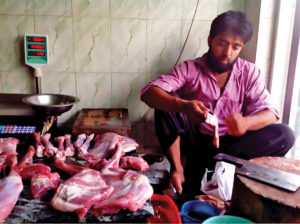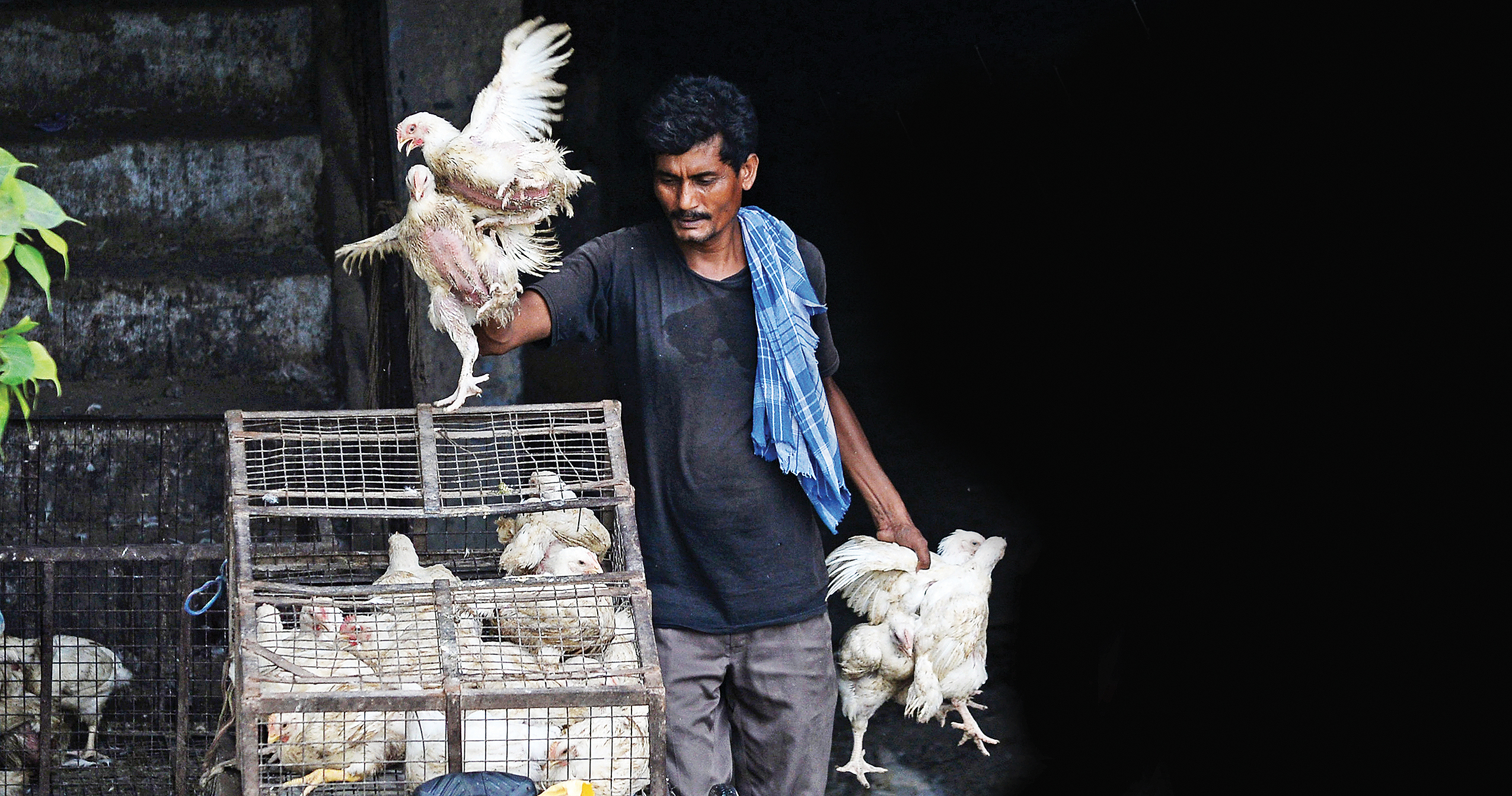A recent study revealed that butchers are at a higher risk of infections. A peek into their everyday routine to understand how they cope with such occupational hazards
They spend their lives amid butchered meat, stacked in piles around them or hanging on iron hooks. It is a profession that involves slaughter and bloodshed. Not all are comfortable with what they do, and they would be even more uncomfortable if they knew they are at high risk of infection, which might also adversely affect their customers and family members.
Which begs the question: how many are maintaining basic hygiene and following precautionary measures to evade these hazards?
The National Research Centre on Meat (NRCM), which is screening butchers in Hyderabad and Delhi, suggested that 5-8% of the butchers have antibodies for zoonotic diseases like Brucellosis and Leptospirosis. These infections can also spread to their family members or to meat consumers.
“As per FSSAI rules, the company or government agency that engages them must conduct regular medical check-ups, but that is not happening. Slaughter houses are also not doing it,” says SB Barbuddhe, principal investigator of the research from NRCM.
He adds: “Leptospirosis spreads through rodents and mice near shops selling meat, as the urine of rodents spreads it. We have supplied aprons and gloves to butchers, but they refuse to use it.” When such butchers go home with dirty clothes, their family members and children get infected.
He says, “While slaughtering the animal, if it touches the ground, the meat gets contaminated. In most shops selling meat, they don’t clean the floor properly. Storage is another important issue.” So, here both the butcher and the consumer are at the risk of infection. In Hyderabad, many meat shops have been fined for flouting rules and overlooking hygiene standards. NRCM will also be organising awareness camps for butchers.
Slaying peril
It is a regular day at a meat shop in Noida’s Nithari market — butchers are slaughtering animals for meat, customers are pouring in to procure fresh meat and the chickens are sitting in crammed cages awaiting their turn. The stench in the meat shop is quite unbearable.
Asked how they deal with the foul smell on an everyday basis, Mohd Yasim Malik, 45, who works at a meat shop, says, “We get used to it eventually. Do we have any other option? And we treat it as food that is ultimately eaten. We don’t think of it as murder or killing an animal. Also, it is our family occupation. It gives us money to feed our children, so we have no problem as long as it is paying us well.”

While cutting up meat into smaller pieces to hand it over to his customer who wants only the breast portion of the chicken, he adds, “We spend our entire lives butchering chicken and goat. Our children will also follow us and do the same. I used to see my father doing this as a child, which is why I no longer have any hesitation. Initially, it was a little difficult but with practice, it becomes easier and you start treating it as any other normal work.”
None of the butchers in this market are wearing gloves or aprons. “If I think about it, yes, we might be exposed to diseases because there is blood around us and sometimes even on us, but it is our job and we have to do it. It has become something so regular and normal for us. What precautions can we possibly take?” wonders a 36-year-old owner of another meat shop, Salman Nadeem.
Some also narrate how they got an injury or two when they just began doing this work. “It can be difficult in the beginning and you need to be careful. You are dealing with a knife, so you have to handle it with care. Even I got a deep cut on my finger when I began working. You have to learn the technique, otherwise you might end up injuring yourself in the process,” he adds.
It has now become a very mechanical process for Zubair, who too works at one of these meat shops. He says that he was really hesitant at first, but he had to do away with this discomfort to earn a livelihood. “Who likes slaughtering? But we have to do it anyway,” he says.
Most of the butchers here are not aware that diseases can be transmitted through these animals to them, to their family and also to their consumers, if the meat is not handled properly. “We have been doing this for years and nothing has ever happened to us. We have customers who come to us regularly because we provide fresh meat,” says Mohsin Ali, another butcher, adding, “People might wonder how we do this and some might think that whatever we are doing is unclean but these people do eat the meat that is served on their plates Many are too afraid to see where it comes from and how.”
He goes on to say that many people think that they become immune to the sight of blood and gore, which makes them insensitive. “This is not true because no matter how much we enjoy consuming meat, no one likes it in the form we see it. But yes, it is partly true that we get used to it. Meat is food for us and we begin treating it like that. What you see hanging here will eventually be served to you with appealing garnishing and spices,” he concludes.
Hopefully, Delhi-NCR will soon have awareness camps for butchers — for the sake of their own health as well as customers.





